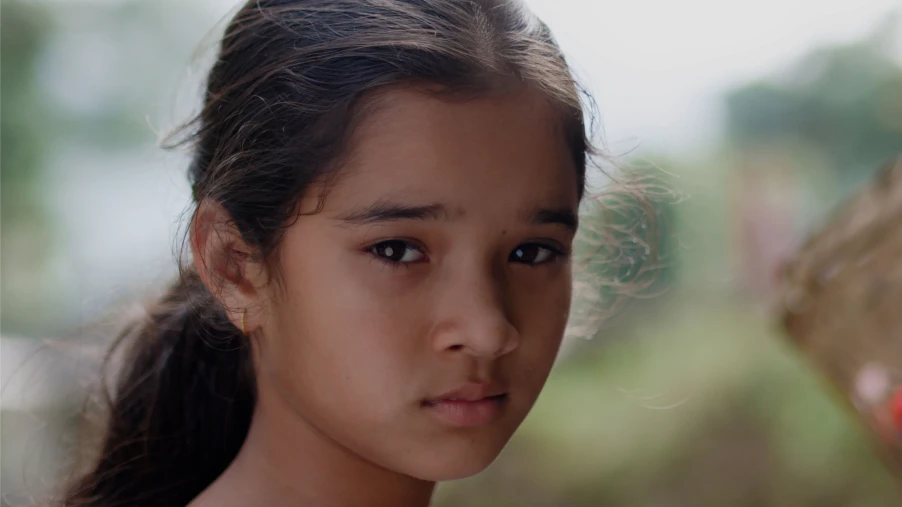COLLECTABLE STORIES: THE BOAT

THE BOAT
Short Talk with Luke Morgan (director and writer) and Jake Morgan (producer and composer)

Ireland / 2023 / 15’47’’
BEST FICTION FILM Category
21st IN THE PALACE International Short Film Festival 2024
Synopsis: When Dhuckia grows up, she wants to be a boat-maker like her Dad. But when he finds out that she is showing the early symptoms of leprosy, he must make a terrible choice. A Nepal/Ireland co-production. Based on a true story.
Biography: Luke Morgan is the winner of the Gran Prix for an Irish Short at Cork International Film Festival 2023 and Foyle Film Festival 2023, both of which are Academy-Award® Qualifying. He is the co-director of a new Irish Feature film, Froggie, which will be released in late 2024. As well as being a filmmaker, he is an award-winning poet. He lives and works in Galway, Ireland.
 Luke Morgan, director
Luke Morgan, director
In The Palace: Let’s talk more about the storyline itself, tell us about the disease and why so many people do not have access to the cure.
Luke Morgan (director): When we told our family and friends that we are going to Nepal to make this film, and we explained to them that the film is based around a true story that involves leprosy, the first thing everybody said to us was that “ Oh does that still exist?”. Most people think that leprosy is a disease of bible times, but the unfortunate truth is that it is still out there. Although it is very curable, many people in certain parts of the world do not have access to the cure. The link with Ireland is that the cure for leprosy was invented in Trinity College in Dublin, so that is why it made sense for an Irish company like ourselves, to team up with Nepalins Company and together we created “The Boat”.
In The Palace: How did you decide the main character to be a boat maker, and what is the symbolism with the name of the film?
Jake Morgan (producer): The symbolism with the boat is, because in Nepal burrowing happens in a boat, which they set up on fire, but also wishes are made by lightning paper boats on fire. So, we wanted to draw that kind of comparison there. The little girl wishes for another man with leprosy, that she sees, to get better., but she actually has leprosy herself. And when her father lights the boat at the end, he is wishing for his daughter to get better.

Luke Morgan: Rather than doing a promotional video to raise awareness towards leprosy, the risk was trying to create something imaginable and empathy with the character, by creating a fictional piece. We wanted people to respond with a heart, rather than with head. We think that cinema has this brilliant opportunity to present based emotion across multiple different cultures.
Jake Morgan: The visuals in the film are also a big part of it.
In The Palace: How was your experience with filming in a location like this, tell us more about the set situation.
Luke Morgan: As you can see we are very pale, being from Ireland, so we brought space suits in order to not get burnt.
Jake Morgan: We also got nets around every part of our body, because there were these hornets and all sorts of animals.
Luke Morgan: Everything was trying to kill us.
Jake Morgan: We actually also almost died in the quicksands. We were trying to cross a river and under the river there were quick sands. Luke was holding the camera while I was behind him and he suddenly shot down and it was like “Keep the camera above!”.

In The Palace: What was your first thought in this situation?
Luke Morgan: My first thought was to save the camera, I did not mind if I died, but the footage was saved.
Jake Morgan: We only had one camera, so the reason we were crossing the river was to get another angle of the boat that we had set up on fire. The sun was setting and the light was running out, it was crazy.
In The Palace: Definitely you have faced some challenges on set, but I am happy that you got through them.
Luke Morgan: Thank you very much, it was fantastic and we couldn't have done it without the help of people from Nepal, which were like half of the people involved in the creation of the film. The actors did not speak any English, so it was a very interesting experiment to try and work with them.
In The Palace: How was the communication going between you and them?
Luke Morgan: Well they did not speak English, but we all spoke the language of cinema!
Jake Morgan: It was mostly hand gestures, it was a challenge for sure.
Luke Morgan: They were so professional, I did not have to direct them at all.
Jake Morgan: They were actually father and daughter, which was cool.

Author's view (Petar Penev):
It the heart of theis film lays the nobel cause of irish filmmaker Luke Morgan – to shed light on leprosy, an illnes still taking the lives of many despite a cure already existing out in the world. The cause led the author to rural Nepal to tell what he views as ‘ultimately a story on the love between father and child’ be it with a tragic and heartbreaking finale.
The movie, while stylistically set completely in reality, employes a more mystical and symbolic approach to storytelling, most prominent in the way charecters communicate, behave and live life. Much like the illness they don’t understand the way things work from a scientific lens, as they don’t have the access and resources necessary, leading to unnecessary suffering. This conflict between what the charecters know and what the western audience know succesfully serves as a wake up call for the injustice we live in.






